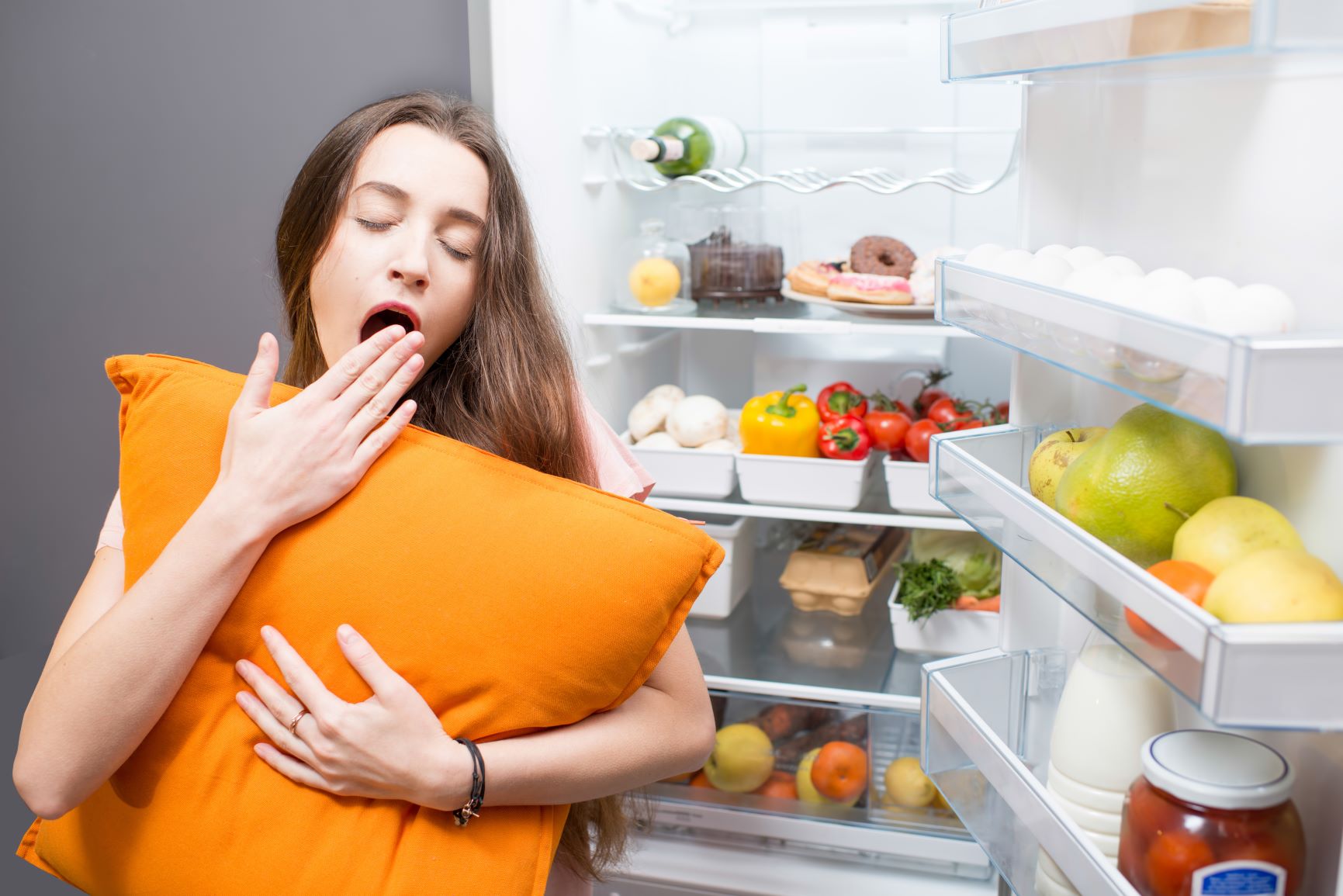As Americans become more health-conscious, they are also beginning to realize the extent that diet, exercise and sleep have on their overall wellness.
Some are taking it further by learning how their food choices can greatly affect the quality and quantity of their sleep. They’re discovering that eating certain healthy foods can calm the nervous system and trigger a sleep-inducing hormonal response, promoting a good night’s sleep.
Eat-Sleep Connection
According to national surveys, the average American gets about 6 hours and 40 minutes of sleep on weeknights – falling short of the recommended 8 to 9 hours. In fact, studies show that the amount of sleep Americans reported getting has decreased over the past few years.
At the same time, obesity rates in the United States have increased, according to the Centers for Disease Control. There’s plenty of research out there that shows a definite connection between less sleep and more weight.
Scientific studies show that in sleep-deprived individuals, the body produces more ghrelin, a hormone that tells the body to eat more, and less leptin, which signals it to stop eating. A study from the University of Chicago showed that people who slept only four hours a night were more likely to choose high-carb, sugary, and starchy foods over healthier options.
While you may not be quite that short on sleep, it would be good to follow some general “rules” about what and how to eat that will help you a develop a better sleep pattern.
Moderation is Key
Don’t skip your daytime meals. While it may seem like an easy way to lose weight, skipping meals can throw off your sleep pattern. That’s because when the body thinks it is in fasting mode, it changes the normal hormone levels.
 Often when people skip a meal such as breakfast or lunch, they end up splurging or overeating at dinner time, which just makes the problem worse. The body’s response is increased blood flow in your digestive tract which triggers secretion of more gastric acid, thereby stimulating your system rather than calming it in the evening to prepare for bedtime.
Often when people skip a meal such as breakfast or lunch, they end up splurging or overeating at dinner time, which just makes the problem worse. The body’s response is increased blood flow in your digestive tract which triggers secretion of more gastric acid, thereby stimulating your system rather than calming it in the evening to prepare for bedtime.
For those trying to lose weight by cutting calories, it’s important to keep in mind that going below 1200 calories total per day is not healthy and can cause hormonal imbalances that disrupt more than just the body’s sleep pattern.
Eat Carbs for Dinner
Carbs that are high on the glycemic index will activate the body to produce tryptophan, an amino acid that makes you sleepy. Some high glycemic index foods are white rice, instant oatmeal, baked potato, white bread, cornflakes.
Watch the Sodium
Too much salt can interrupt sleep by raising blood pressure and dehydrating you. Cold cuts, or luncheon meat, are a common culprit so avoid these, especially before bedtime.
You should also watch your consumption of caffeine, which stays in your system up to 12 hours. The better beverage option for better sleep is an herbal tea such as chamomile. The plant that chamomile tea is made from acts as a mild sedative.
Vitamins and Minerals
A well-rounded diet that includes the following vitamins and minerals can promote better sleep:
- B Vitamins found in chicken breast, lean beef, salmon, bananas and potatoes
- Calcium found in low-fat yogurt, milk, cheese, fortified orange juice
- Zinc found in oysters, beef, Alaska king crab
- Iron found in oysters, clams, beef tenderloin, dark-meat turkey
- Copper found in whole grains, beans, nuts, potatoes, dark leafy greens
Better Bedtime Snacks
- Sweet potatoes – great sources of potassium, magnesium, and calcium to help you relax (part of Thanksgiving meal)
- Banana – good amount of magnesium and potassium, help muscles relax
- Nuts – almonds (magnesium); pistachios (magnesium and B6), not more than an ounce before bed
- Dairy – tryptophan found in dairy helps make melatonin
And melatonin gets the last word… Sleep well!

